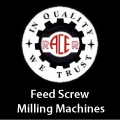
Home >> Resources/Information >> Extrusion, Wood
Kleer Lumber Inc. in a state-of-the-art extruding
Kleer Sailing
When Tom Loper says his company's product doesn't grow on trees, he's simply being literal.
Known as "plastic wood," the product is instead manufactured by Kleer Lumber Inc. in a state-of-the-art extruding facility in Westfield's north side. There, thousands of tiny plastic pellets are melted down, fed into a press and formed into one of the newest building materials on the market.
This trimboard, as it's called, comes in 18- to 20-foot lengths, rivals first-rate cedar or pine lumber in terms of looks, quality, and longevity, and has become a viable option to builders frustrated in their search for quality wood products.
Kleer is expected to be in full-tilt operation by mid-2005, said Loper, president and co-founder of the company, and to ultimately create 40 new jobs for Western Mass.; 20 positions have already been filled. And even though 'plastic wood' may not pique the region's interest right away, Kleer's staff, the Western Mass. Economic Development Council (EDC), the Regional Technology Corporation (RTC), and the City of Westfield are all already big fans.
That's because the operation creates the type of high-tech manufacturing jobs that area economic development leaders have been craving, and it also helps create a critical mass of such manufacturing that will help attract other companies to Western Mass.
Knock on Wood
Kleer's 'lumber' is PVC-based trimboard for exterior use, created through a complicated process of extrusion - sending melted plastic, combined with a foaming agent, through large presses (extruders) and into dies that mold it to resemble conventional lumber. Kleer is the first company to add 'grain' to the material, by imprinting a pattern directly onto the planks.
Once cut into boards, the lumber is moisture, insect, and rot- resistant, and costs about the same as clear cedar - a high quality wood without knots, and the inspiration for Kleer Lumber's moniker. The material can also be sawed, painted, nailed, drilled, glued, or heat-treated in order to curve or bend around comers.
Kleer's President, Tom Loper, rapped on a piece of the company's product to demonstrate its similarity to wooden building materials, and confesses he has the utmost faith in the product.
"Can you tell I love this stuff?" he asked BusinessWest after explaining the production process.
Loper said Kleer's product addresses a need in the lumber and construction industries, because it is longer Luting and more durable than wood.
"Trees aren't grown as tall as they once were because the demand is great," he said. "So wood is softer now; it doesn't hold paint as well, and contractors can't get 18-and 20-foot lengths when they need them. industry is frustrated."
One of Kleer's four managing partners, Andrew Sears, was a pioneer in distribution of the product from Western Mass. before plans to create a manufacturing facility came to fruition. He said the addition of a manufacturing facility was mandated by growing demand for the product - demand that wouldn't be met otherwise.
"The product was being distributed already, but there wasn't enough capacity anywhere to support national distribution," Loper said. "So, we decided to make the product instead."
Making PVC-based trimboard is also an ecological endeavor, Loper explained. The plastic pellets from which the material is made from are produced using natural gas, and after the pellets are melted and made into the foam that becomes the plastic planks, any unused portions are returned to one of three silo-like tanks to go through the process again. "There is absolutely no waste," Loper said.
Cool Runnings
Despite the automated, clean-running nature of the Kleer manufacturing process, finding a facility that is both large enough to house the equipment required for operation and close enough to the rail lines used to ship much of the product proved a challenging assignment.
After looking at potential locations in Springfield and other locales in Western Mass. (where three of the four managing partners hail from), Kleer found its home in the former Greif Brother's building in Westfield.
Vacant for 10 years, the facility was once used to manufacture cardboard storage barrels. It is long enough to accommodate the largest extruders ever brought into
New England, as well as the world's largest PVC mixing room, where the pellets that make Kleer lumber are prepped. The plant currently has two extruders, but will eventually hold seven, said Loper, adding that he also hopes to see the company expand into a second location in the future. Until then, though, national distribution of Kleer lumber will stem entirely from the company's Westfield location, as will sales of the product.
The process of creating the materials is a methodical one, Loper noted. In fact, it is so automated that a plank of trimboard manufactured at the plant never has to touch human hands. That means the company will require less staffing than most manufacturing plants, but the company is still a coup for Westfield and Western Mass. in general.
"These are good-paying jobs," Loper said of the positions created by the company, adding that they represent a new era in technological manufacturing in the region, and the type of positions that are less likely to be outsourced to foreign countries.
Final Cut
Members of the RTC, EDC and some of Westfield's key players also contributed to the launch of Kleer Lumber, by assisting with the search for a location in Western Mass., hiring for some key positions, and navigating zoning and tax issues. Loper said several local vendors also worked with Kleer to provide solutions for problems that arose as Kleer got off the ground, concerning electrical wiring, railroad configuration, and furnishings, among other concerns.
"We give these people a lot of credit," he said. "These people are experts in their field and master craftsmen, and they're right here in Western Mass. We didn't have to look far to get the help we needed."
And with that community partnership in place, Loper said Kleer is poised to contribute to the region's economic development efforts efforts as one of the most technologically-advanced and promising new companies to set up shop in recent years.
"This is a win-win for the company and the community," he said.
Copyright BusinessWest Oct 01, 2004




